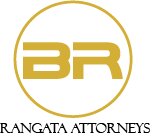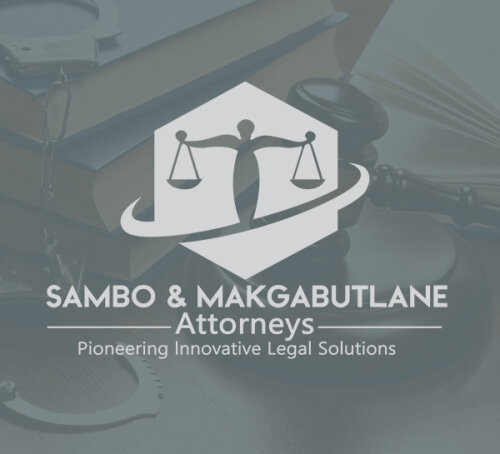Best Oil, Gas & Energy Lawyers in Pretoria
Share your needs with us, get contacted by law firms.
Free. Takes 2 min.
List of the best lawyers in Pretoria, South Africa
About Oil, Gas & Energy Law in Pretoria, South Africa
The oil, gas, and energy sector in Pretoria, South Africa, is a pivotal part of the country's economy, reflecting global trends while catering to local needs. As the administrative capital of South Africa, Pretoria plays a significant role in legislative and regulatory developments in this sector. This field encompasses various activities such as exploration, production, distribution, and regulation of oil, natural gas, and renewable energy sources. The South African government, recognizing the importance of energy security and environmental sustainability, has introduced several legislative measures to regulate this industry.
Why You May Need a Lawyer
Engaging a lawyer specializing in oil, gas, and energy law can be crucial in several situations. From navigating complex regulatory requirements to drafting contracts for exploration rights, legal expertise ensures compliance and protects your interests. Common scenarios include acquiring licenses, environmental compliance, negotiating leases or joint ventures, resolving disputes, and understanding local and international regulations. Legal guidance is essential for both individuals and companies in mitigating risks associated with the volatile and heavily regulated nature of the energy sector.
Local Laws Overview
In Pretoria, the regulation of oil, gas, and energy is shaped by national legislation and local government policies. Key aspects include:
- Mineral and Petroleum Resources Development Act (MPRDA): Governs the exploration and extraction of mineral resources, ensuring equitable access to South Africa's mineral wealth.
- National Energy Act: Promotes energy efficiency and supports the development of renewable energy sources.
- Environmental Management Act: Ensures sustainable development by requiring environmental assessments and management plans for energy projects.
- Electricity Regulation Act: Regulates electricity supply and ensures reliable and efficient electricity distribution.
- Renewable Energy Independent Power Producer Procurement Programme (REIPPPP): Encourages investment in renewable energy projects, creating opportunities for private sector participation in energy generation.
Frequently Asked Questions
What are the primary laws governing the oil and gas sector in South Africa?
The key laws include the Mineral and Petroleum Resources Development Act, the National Energy Act, and various environmental protection laws.
How can a lawyer assist in securing exploration rights?
A lawyer can help draft and submit applications, ensure compliance with regulatory requirements, and negotiate contractual terms with relevant authorities.
What are the common legal issues in the energy sector?
Common issues include regulatory compliance, contract disputes, environmental liability, and access to land for exploration purposes.
Are there specific incentives for renewable energy projects?
Yes, the South African government offers incentives under programs like the REIPPPP to encourage investment in renewable energy.
How does environmental regulation impact oil and gas operations?
Operators must conduct environmental impact assessments and adhere to stringent management plans to minimize environmental harm.
Can foreign companies invest in the South African energy sector?
Yes, foreign investment is encouraged, though investors must comply with local laws and regulations.
What role does the government play in the energy sector?
The government develops policies, enforces regulations, and supports sustainable energy initiatives through programs and legislation.
How can I resolve a dispute with a local regulatory authority?
Engaging a lawyer experienced in energy law can help you navigate negotiations or litigations to resolve disputes effectively.
What are the penalties for non-compliance with energy regulations?
Penalties may include fines, suspension of operations, and in severe cases, legal action against company executives.
Is it necessary to have a lawyer for renewable energy projects?
While not mandatory, having a lawyer can streamline the process, ensuring compliance with all legal and regulatory requirements, and providing strategic guidance.
Additional Resources
If you need further information, consider the following resources:
- The Department of Mineral Resources and Energy (DMRE): Provides insight into government policies and regulations.
- The National Energy Regulator of South Africa (NERSA): Offers guidance on energy supply regulations.
- South African Petroleum Industry Association (SAPIA): Keeps track of developments in the petroleum industry.
- South African Wind Energy Association (SAWEA): Provides information on wind energy projects and initiatives.
- Local law firms specializing in oil, gas, and energy law can offer tailored advice and services.
Next Steps
If you require legal assistance in the oil, gas, and energy sector, consider the following steps:
- Identify your specific legal needs and objectives.
- Research and select law firms or attorneys in Pretoria with proven expertise in oil, gas, and energy law.
- Schedule consultations to discuss your needs, evaluate their expertise, and understand their fees.
- Ensure the lawyer or firm you choose is well-versed in relevant local and international energy laws.
- Maintain open communication with your selected legal professional to efficiently address your legal concerns.
Legal issues in the energy sector can be complex and challenging, so obtaining specialized legal advice is essential for navigating this dynamic environment effectively.
Lawzana helps you find the best lawyers and law firms in Pretoria through a curated and pre-screened list of qualified legal professionals. Our platform offers rankings and detailed profiles of attorneys and law firms, allowing you to compare based on practice areas, including Oil, Gas & Energy, experience, and client feedback.
Each profile includes a description of the firm's areas of practice, client reviews, team members and partners, year of establishment, spoken languages, office locations, contact information, social media presence, and any published articles or resources. Most firms on our platform speak English and are experienced in both local and international legal matters.
Get a quote from top-rated law firms in Pretoria, South Africa — quickly, securely, and without unnecessary hassle.
Disclaimer:
The information provided on this page is for general informational purposes only and does not constitute legal advice. While we strive to ensure the accuracy and relevance of the content, legal information may change over time, and interpretations of the law can vary. You should always consult with a qualified legal professional for advice specific to your situation.
We disclaim all liability for actions taken or not taken based on the content of this page. If you believe any information is incorrect or outdated, please contact us, and we will review and update it where appropriate.
















